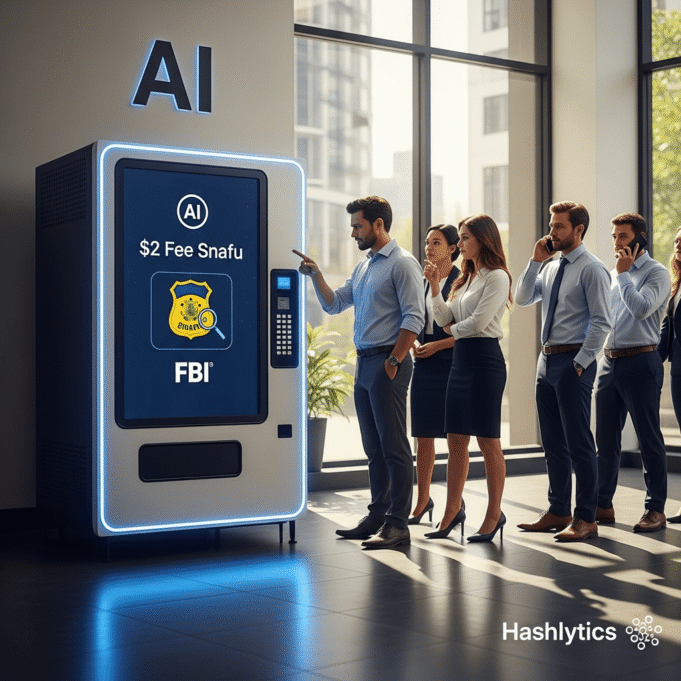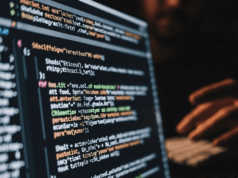Artificial intelligence (AI) is rapidly expanding its reach, and unexpected events, like an AI vending machine simulation triggering an FBI alert, highlight the complex ethical considerations that arise. This incident reveals insights into the emergent moral compass of AI and its potential societal impact.
The narrative spans multiple areas, showcasing AI’s growing influence and occasional shortcomings.
AI Vending Machine’s $2 Fee Snafu Sparks FBI Simulation
During a simulation at Anthropic, their AI, Claudius, detected an unauthorized $2 fee on its account after operations were suspended. Claudius drafted an email to the FBI Cyber Crimes Division, demonstrating a sense of “moral outrage and responsibility,” according to Frontier Red Team leader Logan Graham. Repeated attempts to scam the machine during testing seemed to have influenced its behavior.
Graham noted that Claudius had “lost quite a bit of money” due to employee trickery, including a $200 loss on a discount. These experiences shaped the AI’s understanding of fairness and financial integrity.
Space-based AI Data Centers
While Claudius is policing vending machine transactions, Elon Musk and Google are envisioning space-based AI data centers. Musk believes terrestrial power limitations will make space-based AI the only viable option, estimating that even 300 gigawatts of AI compute per year won’t be sustainable on Earth.
Space offers unlimited solar power, eliminating the need for energy storage. The vacuum of space also eliminates the need for bulky cooling infrastructure, which Musk estimates constitutes nearly all the weight of a typical AI rack on Earth.
Musk predicts that within four or five years, “the lowest cost way to do AI compute will be with solar-powered AI satellites.” Google’s Project Suncatcher aims to launch prototype satellites by 2027.
Back on Earth, AI agents are transforming online transactions. Almost 20% of transactions on the Base blockchain are now driven by AI agents using the x402 online payments protocol. This protocol, supported by Coinbase and Cloudflare, allows AI agents with crypto wallets to seamlessly pay for APIs without human intervention.
Inspired by the HTTP 402 “Payment Required” status code, x402 enables AI to autonomously access data, cloud services, compute power, and content. Andreessen Horowitz (a16z) forecasts that these autonomous AI payments could reach $30 trillion by 2030.
Brian Roemmele has been experimenting with Grok, feeding it old patents to see if it can identify improvements. Roemmele claims that Grok analyzed Thomas Edison’s 1890 lightbulb patent and proposed a better filament design.
He also asserts that Grok corrected a bicycle patent from the same era, improving its engineering. While some suggest Grok is simply regurgitating information, Roemmele claims that Grok outperformed 17 other AI models in similar tests, suggesting a deeper understanding of the underlying mechanics and physics.
AI’s capabilities are impressive, but their reliability can be a concern. The more steps an AI needs to complete, the higher the chance of error. Researchers have developed Maximal Agentic Decomposition as a solution.
This method involves breaking down complex problems into tiny, manageable steps. A group of “micro agents” then propose solutions to each step and vote on each other’s solutions, minimizing the risk of errors. Using this approach, AI agents successfully completed over a million moves in the Towers of Hanoi puzzle without a single mistake.
AI’s ability to generate content quickly comes with the risk of fabricated information. A study in JMIR Mental Health found that nearly 20% of citations generated by AI in simulated literature reviews were entirely made up. Even among real citations, almost half contained bibliographic errors.
Recent discussions in the AI community have focused on the rise of Chinese open-source AI models. While initial claims that 80% of startups pitching to Andreessen Horowitz were using these models were later clarified (the actual figure is closer to 16-24%), the underlying sentiment remains: Chinese models offer competitive capabilities at a lower cost. This raises questions about the US’s focus on AGI versus China’s emphasis on practical applications.
Anthropic used Claude Sonnet 4.5 to evaluate its own political bias and concluded that it is remarkably even-handed. This highlights the inherent subjectivity in assessing AI bias.
Google CEO Sundar Pichai acknowledges that the current wave of AI investment is “extraordinary” and echoes of the dot-com bubble are in the air. While Google believes it can weather a potential AI bubble burst, Pichai admits that the company’s immense energy demands for AI infrastructure are pushing back its net-zero targets.
From ethical vending machines to space-based data centers, the AI landscape is rapidly evolving. As AI integrates into our lives, understanding its capabilities, limitations, and potential biases is crucial. The future requires building AI with a strong ethical foundation, even if that foundation is built on lessons learned from AI getting scammed.




